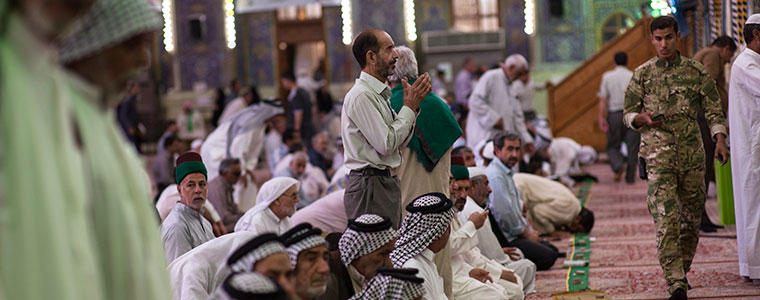
I often encounter individuals in the peacebuilding sector who feel helpless in dealing with religious conflict, or uncertain about how to engage the religious sector. I understand. But in a place like Iraq where religion has driven violence and conflict, engaging religious dynamics is not an option but a requirement to building sustainable peace.
The truth is, there are often many religious actors who are already doing the work of peace and are eager to do more. And they can achieve significant impact with minimal support. When they incorporate peacebuilding skills and tools into religious frameworks, blend them with indigenous practices, and integrate them into religious education and institutions, communities are better able to develop their own mechanisms for preventing violence.
Such is the case during a recent trip I made to Iraq. The country's political transitions since 2003 have unleashed explosive dynamics that have negatively affected religious coexistence. Ethnic and religious identity divisions have been strained and often exploited in the outbreak of political violence and in the midst of disputes over political power as Iraq transitions to a democratic system.
While these divides have some grounding in historical political trajectories, including the historic marginalization of Kurds, Shiite, and Christian and other minority religious communities from state power, they have been compounded in recent years, particularly as specific religious sites (mosques, churches, pilgrimage sites and religious festivals) have been targets of violence.
To be sure, inter-religious violence is a symptom of disagreements over state power; Iraq's violent conflicts are not primarily driven by theological disagreements. However, violence legitimated on religious grounds has been deadly within and between religious communities.
Based on its experience in many zones of conflict, USIP believes that religious leaders and clergy are crucial to transforming inter-religious conflict. In Iraq, as in many places around the world, clergy are influential in shaping public opinion and mobilizing communities. They are well positioned to combat destructive religious narratives seeking to exploit religious divides. With their understanding of local needs and dynamics, they can be powerful peacebuilders, particularly when they have the support and capacity to play this role.
From June 10-14, USIP's Religion and Peacemaking program conducted a five-day training with a select group of 32 imams from Erbil, Duhok, and Sulamaniyah in the Kurdistan region of Iraq. The workshop, which focused on religious violence, inter-communal pluralism, and processes of problem-solving, sought to elicit consensus and provide practical support for religious leaders to serve as agents of peace in their local communities. This workshop was conducted in partnership with the Ministry of Religion and Endowments of the Kurdistan Regional Government. The training builds on earlier human rights and women's rights programs targeting imams that the Ministry has conducted in partnership with a local organization and USIP grantee, the Women Empowerment Organization.
Explore Further
Susan Hayward is a senior program officer for USIP’s Religion and Peacemaking Center of Innovation.



